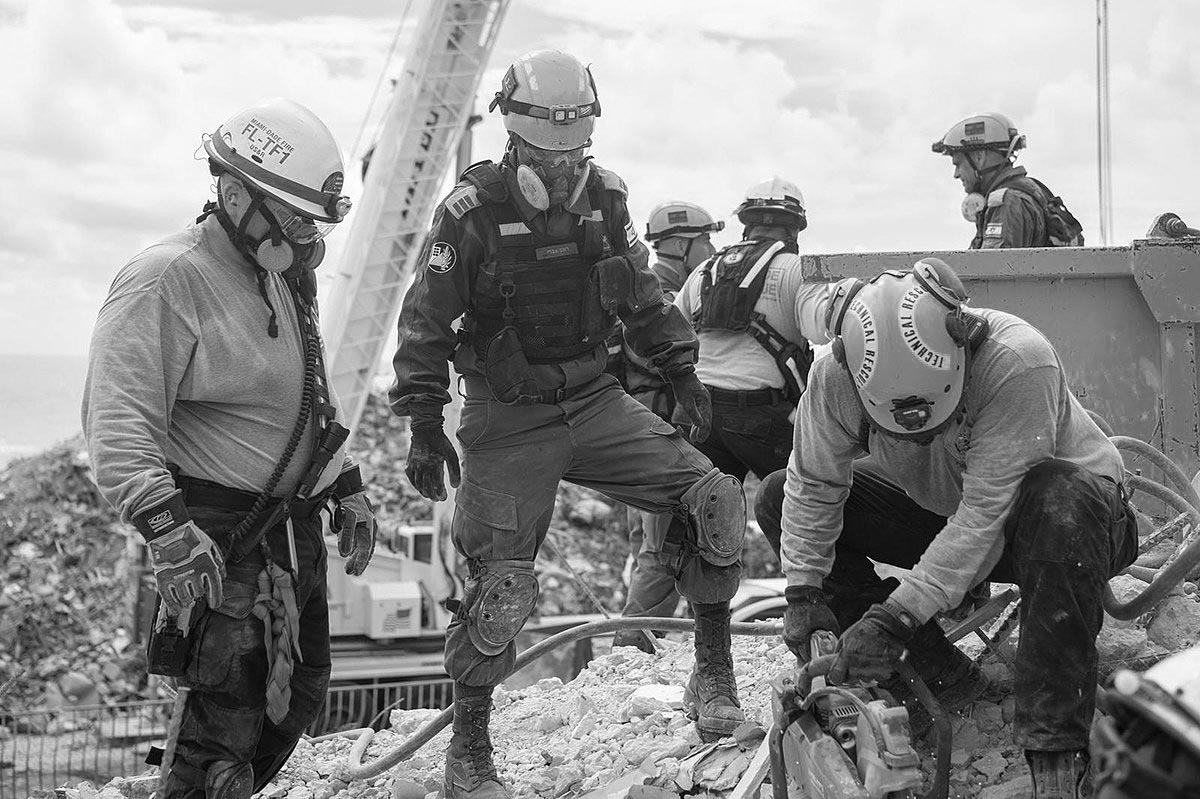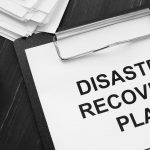If you’re anything like me, you were absolutely shocked and horrified by the collapse of the Surfside Condo in Miami, Florida, that took 98 (possibly 99) lives with it in mere seconds as it turned into a massive pile of rubble.
To watch footage of the building collapse within hours of it occurring, and to see the recovery and investigation efforts that followed, was both extremely concerning and heart wrenching, as well as something that honestly, we’re not accustomed to seeing happen here in the United States. Nor should we EVER have to see it happen again.
The Florida condo collapse hit close to home and brought up numerous questions since.
My name is Jack Hanks, and I’m a Licensed Public Adjuster, trainer, and President, and CEO of Velocity Public Adjusting. I have extensive experience in construction and restoration from my career prior to becoming a public servant.
When I watched the Florida building collapse, I couldn’t help but wonder:
- What went wrong?
- Did the building have damage before this happened?
- Were there any unresolved repairs from the previous catastrophic event? And were any unresolved repairs a result of poor insurance claims handling processes?
- Or Worse—How many other South Florida buildings might be in disrepair and/or similar danger?
As a Public Adjuster, and President / CEO of Velocity Public Adjusting, I also wondered:
- Do property owners understand that they have the right to be represented on every single property insurance claim, they file?
- Do you know you can hire a Property Adjuster for nothing upfront, and that we will advocate for you to ensure that your property repairs are paid
for quickly and to the fullest extent that your policy allows?
- We even have the ability to represent your best interests should your claim go to litigation, since we have our own in-house legal defense team at Velocity Public Adjusting.
What Lessons Can We All Learn From The Florida Building Collapse?
These questions, along with the questions about the Florida incident, and everything I’ve seen go down in Puerto Rico after multiple catastrophic events there led me to write an article for the Orlando Sentinel titled:
“Surfside condo collapse should be a lesson for Puerto Rico”
As my article gained traction, I began hearing from other peers, including claims litigators, about their thoughts on what’s happening right here in the US and within our own Territories.
This past week, I even appeared on
CBS News after they read my piece and wanted to follow up on it by getting my insights from the eyes of someone who represents policyholders, not the insurance companies.
In both my article and my interview, I shared about the work I’ve been doing as a Public Adjuster nationwide, including in Florida where I’ve worked on large-loss commercial projects after hurricanes Charley, Frances,
Ivan and Jeanne. As well as the work I’ve been doing in Puerto Rico for the past several years, where I’ve been working as a public adjuster assessing damages from two major hurricanes and a devastating earthquake.
Over the years I’ve made numerous recommendations about the fixes that are absolutely necessary to bring some of the large condominiums and government buildings—like the San Juan Capitol building in Puerto Rico—up to code to ensure the health and safety of these buildings and their residents.
Yet, throughout the island, there are still hundreds of buildings that remain unrepaired from Hurricane Maria—the first major disaster that hit nearly 4 years ago. Many buildings of which are still occupied today and
might pose a terrible safety risk!
You might be wondering…
Why are these buildings still in disrepair and still occupied after 4-years?
Good question!
Unfortunately, the answer is a dark one… (I’ll share more on this in a moment.)
First, I want to touch quickly on:
The Difference Between Public Adjusters & Claims Adjuster
It’s because of what I’ve witnessed in both my careers in restoration and Public Adjusting, that I’m on a mission to make sure every single property owner understands the difference between a public adjuster and a claims adjuster.
To put it simply— Claims Adjusters work on behalf of your insurance company. Public Adjusters work on behalf of you.
When Do You Need a Public Adjuster? Anytime a Disaster Strikes!
Insurance policies…
Most of us have several different insurance policies. If you’re a property owner, then Property insurance is likely a requirement of owning your home and/or commercial property.
As a property owner, you might have picked your insurance agent because of how they treated you, because you know them in some way, or perhaps you got a good deal on your monthly premium from a big-name insurance company.
If you haven’t had any major property damage claims, you can probably say that your insurance company treats you pretty well. And many insurance companies do threaten their client’s good when they’re “just customers.” After all, you have been a loyal paying customer with them for a while now, right?
But what happens when disaster strikes?
Who are you going to call when a Hurricane, Tornado, Wildfire, Earthquake, Hail, Fire, Wind, Flood, or Catastrophic Water Damages Your Property?
The Typical Property Insurance Claims Process Looks Like…
When it comes to most property owners, when disaster strikes, they call their insurance agent that they have a good relationship.
Then their agent—or their voicemail—promptly delivers an 800-Number from them to file their claim with a claims agent. This is the first step of removing the personal aspect from the equation, taking the property owner from a loyal customer of “x” number of years’ status to the faceless policyholder status.
The claims agent will ask some questions and help them file the claim, and then tell them that a claims adjuster will be in contact “soon.” (A claims adjuster who has been hired by the insurance company to represent their best interests of course.)
Finally, the claims adjuster will assess the damages, share how much they believe the repairs will cost. They then typically offer to cut the policyholder a check asap for the damages once they sign a release form, which of course states that both parties agree that the claim has been paid in full.
While the above process might suffice for some basic property damage claims, the more complex and expensive claims are where things tend to get messy resulting in underpaid and delayed claims processing.
Look, I’m definitely not arguing that all insurance companies are
evil here…
I know of some solid insurance companies that are committed to doing the right thing. And that’s amazing…
But, the facts still remain that:
Insurance
is big business
- Insurance companies sell insurance policies to make money.
- And claims adjusters will always have the insurance company’s back first and foremost, not yours.
Alongside those, you’ve also got the facts that most property owners—
except you of course since you’re reading this—are
not aware that:
- The buck doesn’t stop with the claim’s adjuster’s word.
- Public Adjusters exist and are available to represent them as their advocate and ally. (Most people don’t become aware of Public Adjusters until a problem with their claim arises.)
- That they can afford a public adjuster because most public adjusters don’t require payment until their claim is paid in full. (Which incentivizes public adjusters and insurance claims attorneys to make sure the property owner’s claim is paid to the full extent that their property insurance policy allows.)
If insurance companies have claims adjusters who have their back when disaster strikes, shouldn’t you have someone who has your back too?
The Good, Bad, Ugly & Dark Side of Property Insurance Claims
As a Public Adjuster, I’ve seen the good, the bad, and the ugly when it comes to catastrophic property damage and the property insurance claims process that follows.
Like I mentioned in
my recent interview on CBS, we’re seeing the absolute worst of this right now go down in Puerto Rico where some insurance companies are following an incomprehensible business model and claims handling processes that I’ve dubbed:
The Terrible 3-D’s—Delay, Deny, Defend
This is where insurance companies like MAPFRE—which I’ll share more about this filthy insurance player in a moment—are delaying payments for repairs, denying claims and benefits for ridiculous reasons, and when a policyholder dares to contest them—they defend, defend, defend. This oftentimes ties claims up in court for years as seen with Hurricane Maria victims.
These ugly insurance companies are looking out for their best interest first. All at the complete detriment of their policyholder’s health and safety—perhaps even putting their lives at stake with buildings left severely damaged and occupied in Puerto Rico.
Like I mentioned above, one of the worst culprits is MAPFRE—a foreign insurance carrier out of Spain—that I called out in my recent CBS news interview because of their absolutely detestable claims practices that are to blame for many of the claims denials in Puerto Rico that are putting people’s lives and properties at risk.
MAPFRE even stooped to the age-old trick of including supposed “claims release language” on the back of repair checks, which they mailed out to hundreds of Puerto Rican property owners who suffered damages.
Hundreds of MAPFRE’s customers received these checks that only covered a fraction of the damages to their property, and cashed them assuming they were meant to cover a minuscule portion of their property damages. Most of which were completely oblivious and unaware of the fine print on the back that states that cashing this check was “equivalent” to settling their claim in full.
It doesn’t take an attorney or a Public Adjuster to determine that this is an absolutely detestable and wrongful claims practice!
Thankfully
the Puerto Rico Supreme Court stopped this wrongful claims practice, and the government is looking into MAPFRE’s terrible practices.
Property Owners Deserve An Advocate When Disaster Strikes.
As a Public Adjuster, I’ve witnessed the best and the worst sides of insurance carriers and their claims adjusting processes.
What’s happening in Puerto Rico today, is something that has happened numerous times to underrepresented policyholders throughout the U.S., making it a good reminder that property owners deserve, need, and have
access to an ally and advocate.
When Disaster Strikes…
Hiring a Public Adjuster—like our team of Licensed Public Adjusters here at Velocity—costs you nothing upfront, and can save you the headache of navigating the claims process alone.
Our experienced Public Adjusters will help mitigate your stress burden during the aftermath of a major disaster by advocating on your behalf as the liaison between you and your insurance company, ensuring your claim is handled properly, timely, and that you receive the full settlement you deserve so you can repair your property, and live your life.


